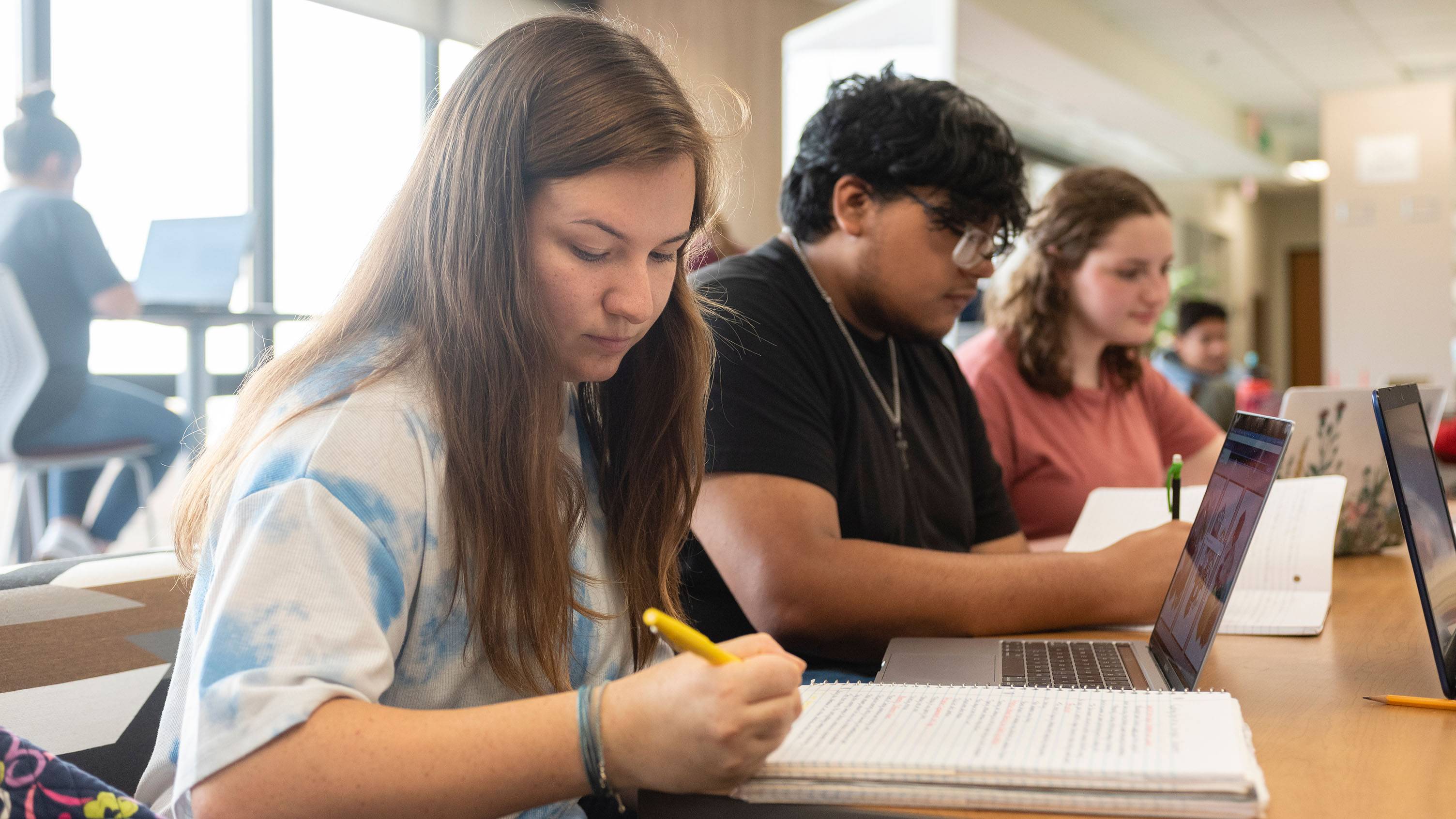As Texas State University students return to campus from the holiday break and fill classrooms to start the spring semester, Healthy Cats peer mentors are ready to share campus resources and offer tips for a healthy new year.
Peer educators are student leaders who are dedicated to promoting health and well-being through presentations and community outreach. Topics addressed include mental health, nutrition, stress, sexual health, and drugs and alcohol use.
Weekly meetings with peer mentors are held on Tuesdays in the Student Health Center, room 202, from 5-6 p.m.

Isabella Rodriguez, senior psychology major and Honors College student, is a peer mentor in Healthy Cats. She works to promote healthy behaviors and habits regarding mental health, nutrition, and sleep hygiene among students.
One of the most requested services from peer mentors is giving presentations to University Seminar 1100 (US 1100) classes for freshmen.
“These presentations range from sexual health and staying healthy to physical activity and stress management tips,” Rodriguez said. “That’s the main thing we do around campus. We table events in the Quad as well, like Cookies and Condoms. We also host a stress management table every semester in the McCoy College of Business where we have students make aroma play dough.”
After every presentation, peer mentors share a list of campus resources, like counseling services at the Counseling Center, medical care at the Student Health Center, TimelyCare, Bobcats Safe Rides, and other local resources.
With the start of the new year and spring semester, Rodriguez suggests that students begin keeping a journal or a planner. “It’s a really healthy habit to start, especially with everyone talking about new year resolutions — which can be really hard to stick to,” she said. “Writing those things down can act as healthy reminders, but it can also help give yourself grace. If you don’t stick to those resolutions, that’s OK. It also is a great way to reflect on the year.” This is something she’s done personally to see how far she’s come and how much she’s accomplished over the semester.

Devin Prophet, junior communication studies major, is a fraternity and sorority life consent and prevention peer educator. He coordinates with the Office of Fraternity and Sorority Life to educate first-year members of fraternities and sororities about sexual health, healthy relationships, and sexual violence to promote open discussion around healthy relationships and behaviors.
“Our most recent event that we put on was Bagels and Boundaries where we gave away bagels in the Quad and talked with students about having conversations around setting healthy boundaries,” Prophet said.
One piece of advice that Prophet recently learned from a mindfulness course at the Student Health Center is practicing meditation for five or 10 minutes first thing in the morning, which is something he recommends every student try.
“In the morning, I get up and stretch and perform mindfulness meditation, which is sitting in silence to think for just a moment,” he said. “Just taking five minutes out
of your day to breathe and recenter does a lot not just for your mental health, but also for your physical health. Just taking a moment to breathe and process the feelings that come with the day has been a huge factor in terms of improving my mental health.”

Erin Whitney, senior English major, is a peer mentor in the Students Against Violence group. Her group of mentors create content for weekly meetings around violence prevention, including sexual and/or dating violence. She also participates in giving presentations throughout campus and to US 1100 classes.
“We are serving as peers for fellow students to provide health information in a more approachable way that isn’t as formal,” Whitney said. “We try to limit the barrier that sometimes exists with receiving sexual health presentations from people outside of your age group. It’s about creating a comfortable environment for people to learn and ask questions about consent in a way that doesn’t feel scary.”
Through primary prevention education, Whitney and the other peer mentors engage students in primary prevention education, discussing how people may experience violence differently based on their identity and other factors, as well as the support available through TXST and in San Marcos.
“After a student discloses something to us, we validate them first and foremost because that’s a difficult thing to do,” she said. “Then we ask them if they want to be connected to additional resources or if they’d like to speak with our supervisors for additional support. We just try to support them where they’re at.”
One piece of advice Whitney would like students to consider when starting a new semester is to focus on creating a regular sleep schedule. Whitney believes that ensuring eight hours of sleep a night as much as possible can be impactful.
“When we first get to college as students, it’s kind of the first time we’re taking care of ourselves and taking charge of what we eat and where we go,” she said. “We’re also finally in charge of our bedtime, if you can call it that. Do what you can to make your bed or bedroom a place where you sleep. Make sure you’re not studying in bed if you can and reduce your blue light intake before you sleep so that your brain produces more melatonin. Create a regular routine.”
Visit the Healthy Cats Peer Education webpage for more information about services and resources.
